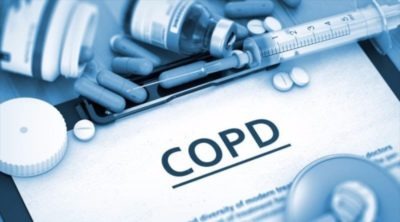ED Treatments That Work
OVERVIEW
Erectile dysfunction (ED) is one of the most common sex conditions that men report to their doctor. Also, up to 30 million men are affected by ED.
ED is defined as the inability to acquire or maintain a firm adequate erection for intercourse.
Though it is not uncommon for a guy to experience erection problems from time to time, ED that is progressing or occurs regularly with sex is not normal and should be treated.
ED can occur:
- Mostly when blood flow in the penis gets restricted
- When nerves are damaged
- Due to stress or emotional reasons
- When you have some serious illness. It can be atherosclerosis (hardening or clogged arteries), heart disease, high blood pressure, or diabetes-related high blood sugar.
Identifying the causes of your ED will assist you in treating it and improving your overall health. Moreover, anything that is good for your heart is generally good for your sex health.
SYMPTOMS
When you have Erectile Dysfunction, it is difficult to get or maintain a hard adequate erection for intercourse (ED). When frequent and inconvenient ER visits become a problem, your health care practitioner or a Urologist can help.
ED may be the first sign of cardiovascular disease, showing that blockages are building in a man’s vascular system. According to several studies, men with ED are more likely to have a heart attack, stroke, or circulatory problems in their legs.
ED is also responsible for:
- Self-esteem issues
- Depression
- Distress for the man and his companion
If ED is causing problems in a man’s life or relationships, he should be handled. Treatment aims to restore or improve erectile function, circulatory health, and a man’s overall quality of life.
CAUSES
Physical or mental issues can both induce ED. However, some well-known risk factors include:
- Being over the age of 50
- Having high blood sugar levels (Diabetes)
- Blood pressure that is too high
- Being afflicted with cardiovascular disease
- Having a high cholesterol level
- Tobacco, drug, or excessive alcohol consumption
- Being overweight
- Lack of physical activity
Even while ED grows increasingly common as men age, it is not usually the result of aging. It is because some guys are sexually active well into their 80s.
Physical Causes Of ED:
- Insufficient blood flow into the penis
- During an erection, the penis cannot hold blood
- The penis does not receive nerve signals from the brain or spinal cord
- Diabetes can induce penile nerve injury or small vessel disease
- Cancer therapies near the pelvis can impair penis function
- Drugs used to address various health issues can prevent erections
Emotional Causes Of ED:
Normal sex requires both the mind and the body to work together. Emotional or interpersonal problems can either cause or worsen ED.
Some emotional concerns that might lead to ED include:
- Depression
- Anxiety
- Conflicts in relationships
- Stress at home or work
- Conflicts between social, cultural, or religious groups
- Concerned about sex performance
DIAGNOSIS
Finding the source of your ED will help you narrow down your therapy options.
Diagnosis of ED begins with your doctor asking questions about your heart and vascular health, as well as your erection problem. Fortunately, if you have any issue related to ED then you can easily find ED meds online. Your provider may also perform a physical examination on you, request lab testing, or refer you to a Urologist.
Health And ED History
Your doctor will inquire about your medical history and lifestyle. It is quite beneficial to discuss information about the substances you use, whether you smoke, and how much alcohol you consume. He or she will inquire about any recent stressors in your life. Speak frankly with your doctor so that he or she can assist you in determining the best treatment options.
Knowing your ED history will assist your doctor to determine whether your problems are due to a desire for sex, erection function, ejaculation, or orgasm (climax). Some of these queries may appear to be personal or even embarrassing. However, rest confident that your doctor is a professional, and your candid responses will aid in determining the cause and best treatment for you.
Your doctor may ask you questions regarding depression or anxiety. He or she may inquire about difficulties in your relationship with a spouse. Some health care providers may also inquire about speaking with your sex partner. However, physical exams will be done along with a few lab tests.
TREATMENT
Taking care of your vascular health and heart is the first step in managing or treating ED. Your doctor may identify all the risk factors which can be improved or prevented.
You may be asked to adjust your eating habits, stop smoking, boost your workouts, or refrain from using drugs or alcohol. You may be offered alternatives to the medications you are taking. (Always try not to change the prescription or discontinue medications without consulting your doctor.)
Your doctor may also ask you to tell about your emotional issues (if any). These could be the result of marital troubles, life stressors, sadness, or anxiety from previous ED problems (performance anxiety).
ED Treatments
Non-invasive treatments are frequently attempted first. The majority of the most popular ED treatments are both effective and safe. Nonetheless, you should see your doctor about the potential side effects of each option:
Oral Drugs (PDE5 Inhibitors)
PDE type-5 inhibitors are medications that help in enhancing penile blood flow. These are the only oral medications approved by the Food and Drug Administration in the United States for the treatment of ED.
- Viagra (sildenafil citrate)
- Levitra (vardenafil HCl)
- Cialis (tadalafil)
- Stendra (avanafil)
You should not use any PDE5 inhibitors without consulting a doctor as it has serious side effects.
Testosterone Therapy
Testosterone Therapy may cure normal erections or help when paired with ED medicines in those rare cases where a low sex drive and low blood levels of Testosterone are to blame for ED (PDE type 5 inhibitors).
Vacuum Erection Device
A vacuum erection device is a plastic tube that fits over the penis and forms a seal with the body’s skin. At the opposite end of the tube, a pump creates a low-pressure vacuum surrounding the erectile tissue, resulting in an erection. The base of the penis is then wrapped in an elastic ring. This keeps the blood in the penis (hard) for up to 30 minutes. With adequate instruction, 75 out of 100 men can use a vacuum erection device to achieve a functional erection.
Intracavernosal (ICI) and Urethra (IU) Therapies
If oral medications are ineffective, the medicine Alprostadil is licensed for treatment in men with ED. This medication is available in two forms, depending on how it will be administered: intracavernosal injection (referred to as “ICI”) or through the urethra (called “IU therapy”).
Surgical Treatment
The primary surgical treatment for ED is the placement of a penile implant (also called penile prostheses). Because penile vascular surgery is not indicated for aged men who have failed oral PDE5 inhibitors, ICI, or IU treatments, implants are the next step. Although placing a penile implant is risky surgery, it has the highest rates of effectiveness and satisfaction among ED therapy methods.
Penile implants are devices that are completely implanted within your body. They make a rigid penis that allows for normal intercourse. This is a wonderful option for increasing uninterrupted intimacy and making relationships more spontaneous.
Penile implants are classified into two types:
- Semi-rigid Implant (Bendable)
- Inflatable Implant

